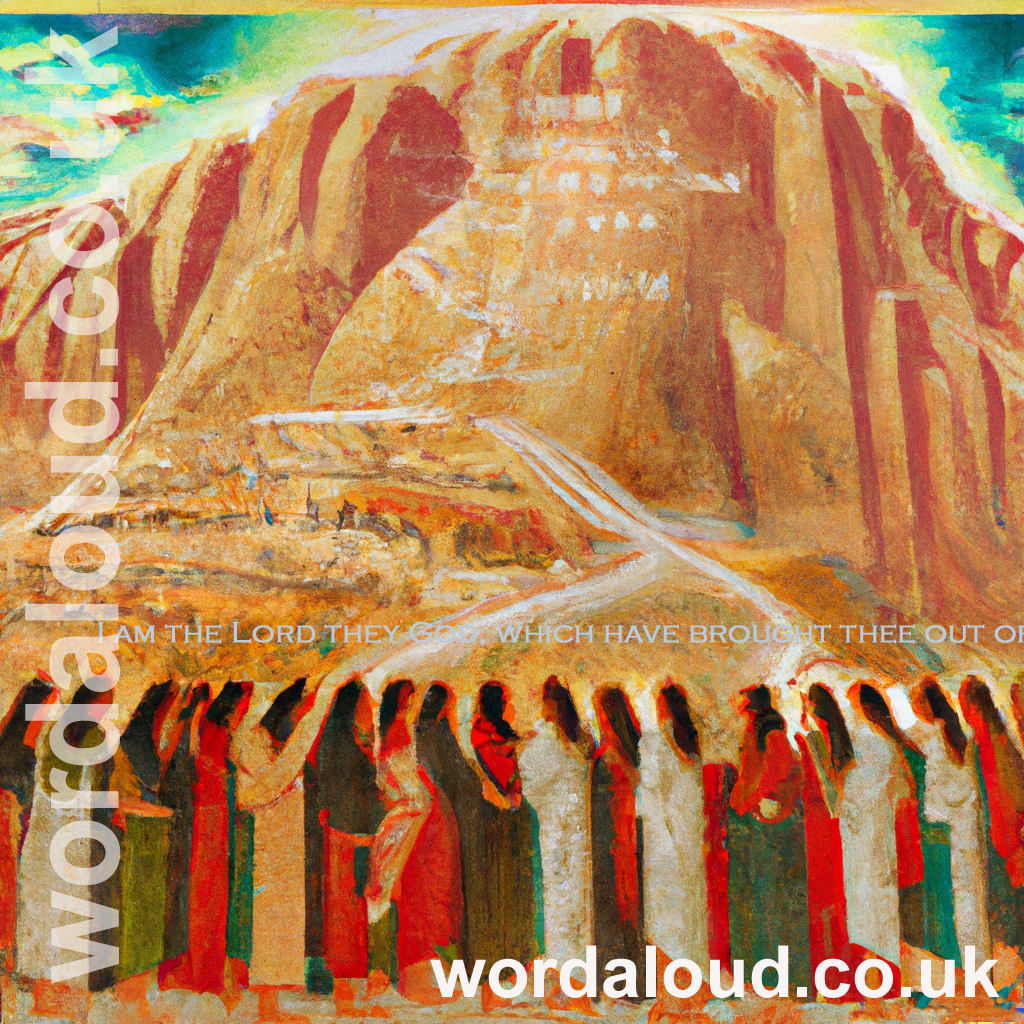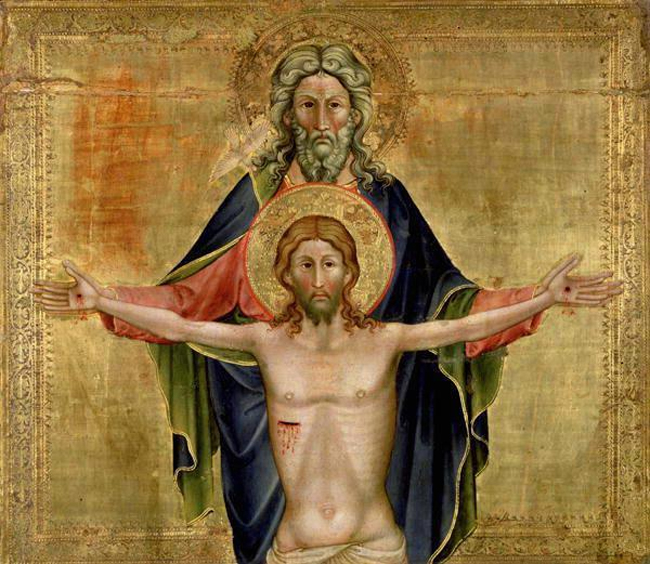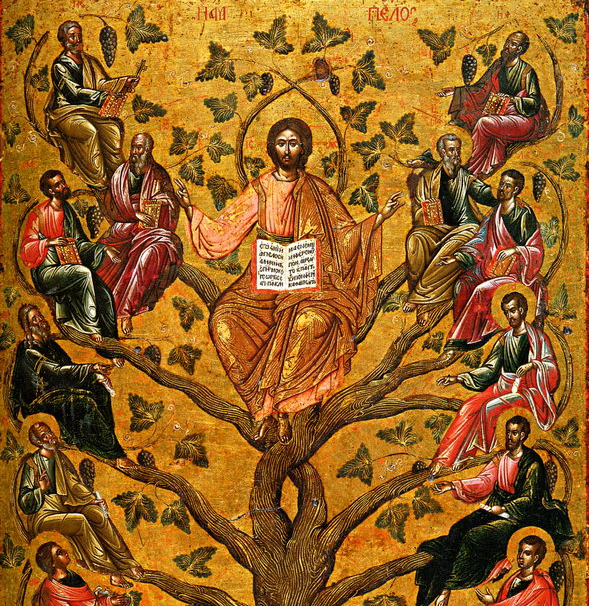The Gospel Of Saint John | Chapter 17 | Priestly Prayer Of Jesus | God The Father, God The Son
As Jesus offers prayer to God the Father we may find ourselves trying to fathom just what it might mean for Jesus to have been God incarnate, God the Son humbling himself to be born human.
There are so many questions we might ask. Was Jesus born into this world with compete knowledge of everything – of all time and every place? If so, can Jesus be said to have shared our humanity, one condition of which is our historical contingency, and all the uncertainty this brings, the limitations, the cloud of not knowing everything, and too the hope, the endeavour, and, when things go well, our sense of triumph? If not, then what did Jesus the man know? Was there some sort of temporary act of forgetting entailed in the incarnation? Would this not entail not being God?
Questions, questions. The Incarnation, Jesus, God the Son, become a human being, is a mystery our limited rational faculties break upon.
We may think of representations of Jesus and Mary, Jesus the child, his arms out-reached, the sign of the cross present at the moment of Jesus’ birth. We think also of the times of Jesus’ prayer, when he takes himself aside to be alone with God the Father. These times of prayer are instructive for us as we seek through prayer to orient ourselves, our lives, to God. In Jesus, it seems we have the exemplar par excellence.
We know some of the content of Jesus’ prayer. We know how he prayed in the Garden of Gethsemane, how he struggled within himself to be true to his Father’s will, to bring the work of our salvation to fruition. Jesus agonized while he prayed in the Garden of Gethsemane. Here more than anywhere else we experience something of what it might have meant to Jesus to be both God and human being. Jesus knew just how horrific the next few hours were to be. Through prayer, Jesus, human being and God the Son, became enabled to endure extremes of suffering for our sake. The agony in the garden attests to the power of prayer, through which the love of God triumphs eternally.
We know also of Jesus’ priestly prayer, recounted by John in chapter 17 of his Gospel. Here, during the Last Supper, Jesus praises God the Father and celebrates his life, through which he has glorified the Father. Jesus prays for his disciples, the Apostles, who will be sent into the world to save mankind, and Jesus prays for those who will hear the Gospel and be converted – Jesus prays for us. Jesus’ priestly prayer is a glorious hymn to our redemption. This is the summit of thanksgiving to God. In Jesus, human history is resolved, as we are saved.
When Jesus teaches us how to pray, when he gives us the words of the Lord’s prayer, the Our Father, Jesus is sharing with us the relationship with God the Father which he enjoys. It is through Jesus, God the Son, that we become privileged to address God as Father. Through the Lord’s prayer, we open our souls to receive our Father, entreating that the Kingdom of God, the Kingdom of heaven, might come to be realised in our lives. Jesus came to give his life for us. In the person of Christ, the Kingdom of God was inaugurated. We pray that he come again – to enter into our lives once more with each day.
Reading the Bible, we are guided to a closer understanding of prayer with Jesus. We are encouraged to take ourselves to a solitary place, to be alone with God. It seems our healthy relationship with God and with our fellow human beings requires this balance between time in community and time alone. These two aspects of our lives then inform and nourish one another, so that each may thrive.
We are aware of the conflicts, the struggle, we find within prayer as we open ourselves up without reservation to God. Not for nothing is our Lord the God of Israel, meaning ‘one who struggles with God’ (Hebrew, transliterated: yisra’el). Through prayer, we encounter our own reality – we become at our most self-aware – at the same time as we place ourselves entirely at the service of the ultimate reality. This is why prayer is such a powerful activity. As we give ourselves in prayer to Jesus we are empowered and we are at our most alive.
This is healing. Our prayer takes our flawed existence and asks God to reconstruct us. Through prayer, we place ourselves in God’s hands, and we are encouraged to know that, as we pray, Jesus himself has done this – he has been in this situation and we pray as Jesus prayed. We know the incredible relief as we ask for healing and as our prayer is answered. It is most strange. Just a quarter of an hour can turn our life around. All that is good seems to resonate from this brief offering of time to God with Jesus. God within us.
![]()

Audio Bible | Endnotes | King James Audio Bible | KJV
Love Revealed By Jesus Christ | A Beginning Of A Prayer To Jesus | The Lower-Case ‘i’ Is Deliberate
As i come to Jesus in prayer, i know that it is essential to acknowledge my initial brokenness and my sins. This acknowledgement sets the foundation for my relationship with Christ. i cannot approach Jesus with a self-righteous attitude, pretending that i have it all together. i must come to him in complete humility, recognizing that i am a sinner in need of a saviour.
Acknowledging my initial brokenness and my sins can be a challenging thing to do. It requires me to be vulnerable and honest with myself and with God. It means that i must confront my mistakes and shortcomings and confess them to Jesus. But when i do this, i open myself up to the healing and transformative power of Christ.
The Bible tells me that ‘if i confess my sins, he is faithful and just and will forgive me my sins and purify me from all unrighteousness’ (1 John 1:9). This promise is a reminder that no matter how broken i may feel, i can always turn to Jesus for forgiveness and healing. But i cannot receive this forgiveness unless i am willing to acknowledge my sins and hold nothing back.
Holding nothing back means that i must be completely transparent with Jesus. i cannot hide anything from him, for he already knows everything about me. i must lay all of my fears, doubts, and struggles before him, trusting that he will take them from me and replace them with his peace and joy.
As i come to Jesus in prayer, i remember to acknowledge my initial brokenness and my sins. i hold nothing back, but instead, i am completely transparent with him. When i do this, i open myself up to the transformative power of Christ, and i can experience the joy and peace that comes from a relationship with him.








